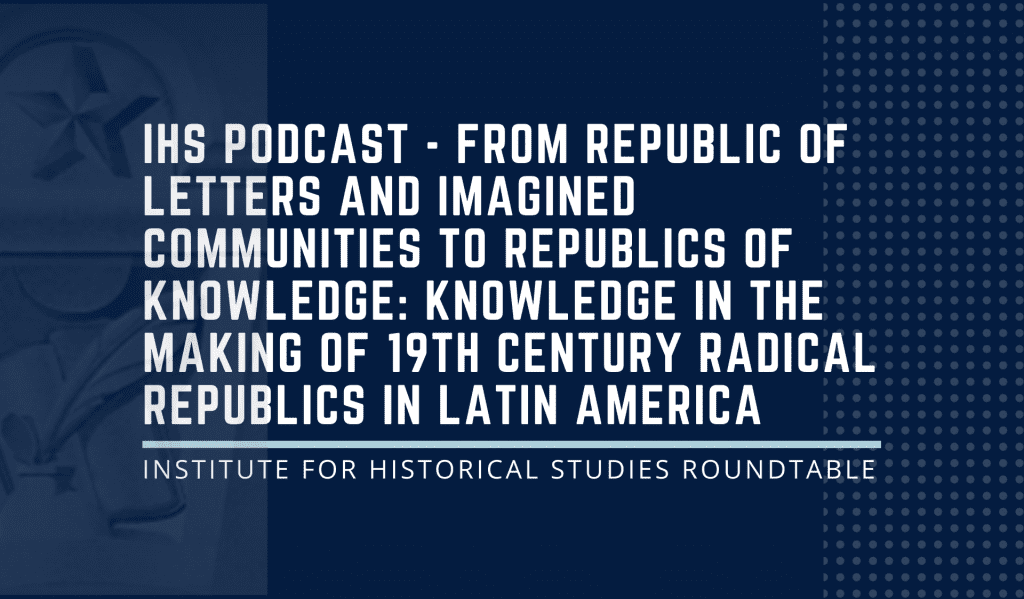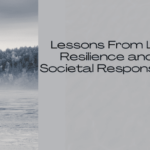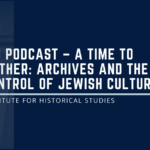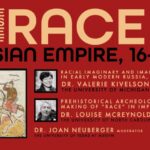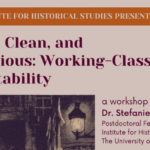IHS podcasts are a new podcast series initiated by the Institute for Historical Studies’ Director, Dr Jorge Cañizares-Esguerra. They are paired with weekly workshops and are designed to foster discussion between graduate students and distinguished scholars in the field. Along with graduate students and guests, each episode features Dr Cañizares-Esguerra and Ashley Garcia, a PhD Candidate in History at UT Austin.
This podcast previews a roundtable discussion that will be held on Monday, September 13 at 12 pm. More information on the roundtable can be found here. It features Professor Nicola Miller (University College London) and co-hosts Jorge Cañizares-Esguerra and Alexander Chaparro-Silva (UT Austin).
Introduction
Historians are very familiar with the categories “Republic of Letters” and “Imagined Communities.” Republics of Letters, we have been told, created modern science and the ideals of a technocratic public sphere, that is, truth-telling experts. Imagined Communities, we have also been told, were originally communities of readers connected vicariously through print capitalism who in the process created emotionally charged reified communities that led to the establishment of the new nation-state,. Nicola Miller takes on these two historiographical traditions to explain the rise of 19th-century democratic republics in Latin America. She presents them as “Republics of Knowledge” committed to the radical idea of an informed and knowledgeable citizenry. This podcast explores Professor Miller’s ideas on the new Spanish American republics that, since the wars of independence, embraced the ideas of the Enlightenment, creating libraries, colleges, schools, newspapers, markets of books, and lithographic images to get a critical public, fully engaged in the making of democracies. The new knowledge created in these republics constantly questioned Northern European knowledges. Miller questions the dichotomous local-global interpretations of knowledge, from engineering to political economy to linguistics to pedagogy and beyond. She also suggests that the most important aspect of knowledge is not its creation but is classification as either local or universal, positioning North Atlantic societies as those that get to decide whose knowledge matters and whose is forgotten and ignored.
~ Jorge Cañizares-Esguerra
Guests
Dr. Nicola Miller, professor of Latin American history at University College London. Dr. Miller joined UCL in 1990. She became Professor of Latin American History in 2007 and was Head of the Department of History from 2007 to 2012. Her research is focused on the intellectual, cultural, political and international history of the Americas, in comparative and transnational perspectives; and in nationalism and national identity, especially in the Americas. Her recent research has been on the history and politics of knowledge. In 2020 she published “Republics of Knowledge: Nations of the Future in Latin America. An enlightening account of the entwined histories of knowledge and nationhood in Latin America—and beyond.
Alexander Chaparro-Silva is an intellectual historian and doctoral student here at the University of Texas at Austin. His dissertation analyzes how Latin American intellectuals came to the US, offered a sophisticated comparative reflection on democracy and race relations in both Americas, and crafted racialized continental differences during the nineteenth century. His research is supported in part by The Conference on Latin American History and The Tinker Foundation. He coedited a book about print culture in Spanish America during the Age of Revolutions and has published several peer-reviewed articles in the U.S., Colombia, and Argentina.
Hosts
Jorge Cañizares-Esguerra is Alice Drysdale Sheffield Professor of History at the University of Texas at Austin and the Director of the Institute for Historical Studies.
Ashley Garcia is a PhD candidate at the University of Texas at Austin. Her research includes 19th century political history, American communitarianism, and American political thought. Her dissertation, “An American Socialism: The Associationist Movement and Nineteenth Century Political Culture,” explores America’s most popular utopian socialist program: the Associationist movement of the 19th-century. Ashley has also completed a Portfolio in Museum Studies as her secondary PhD field.
The views and opinions expressed in this article or video are those of the individual author(s) or presenter(s) and do not necessarily reflect the policy or views of the editors at Not Even Past, the UT Department of History, the University of Texas at Austin, or the UT System Board of Regents. Not Even Past is an online public history magazine rather than a peer-reviewed academic journal. While we make efforts to ensure that factual information in articles was obtained from reliable sources, Not Even Past is not responsible for any errors or omissions.
